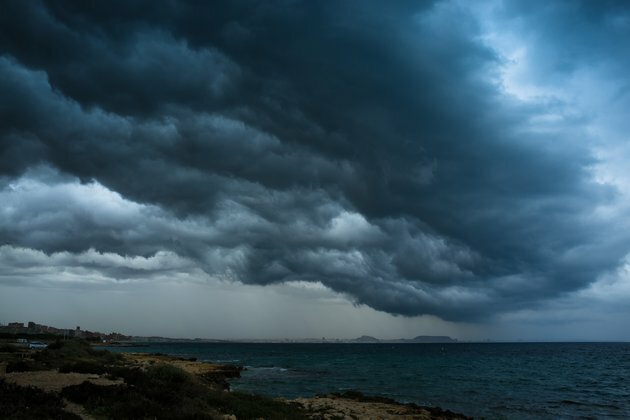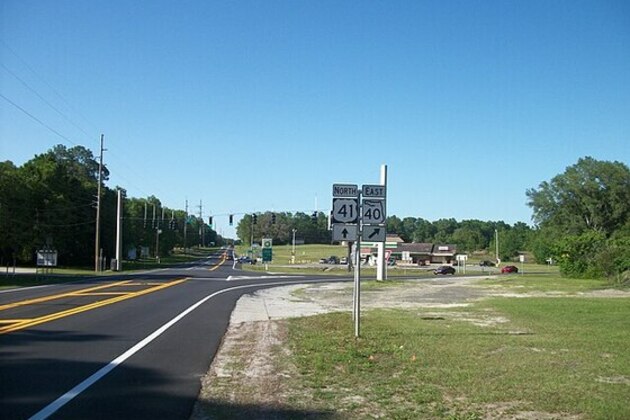Don't ignore serious nonmilitary threats to US national security
The Conversation
10 Sep 2019, 23:52 GMT+10

Almost two decades after thousands died in the attacks of 9/11, there remain many active efforts underway to protect America from international terrorism.
Since 9/11, American domestic and international security policy has been focused on individual terrorists, terrorist groups and rogue countries as the primary threats. The country's defensive response has been focused on the military and law enforcement capabilities. That's natural, because the military knows how to shoot, drop and launch things at threats like that. And those dangers still exist.
However, as someone who routinely analyzes threats, vulnerabilities and risks, I see the U.S. again falling prey to a decades-old problem, which the 9/11 Commission termed a "failure of imagination." That's when leaders miss important, relevant connections or alternatives to what they're focused on.
Specifically, there are other, equally, if not more, dangerous risks to American national sovereignty and security, not to mention citizens' peace of mind that they are able to live and work in a safe and secure society. The economy, climate, transportation and public utilities are all vulnerable to nonmilitary threats. Unfortunately, those weaknesses tend to receive little attention from elected officials - much less any meaningful efforts to solve them. I believe this is because dealing with such concerns isn't immediately evident, easily profitable, politically expedient or exciting to show on TV.
I see America's growing indebtedness as a huge economic vulnerability.
The United States government is US$22 trillion in debt, its highest level ever, and $2 trillion more than in 2017. The national debt is expected to rise to just below the amount the entire nation's economy produces in a single year by 2029.
If an external adversary intentionally caused or worsened U.S. economic problems, the effects in the U.S. and on the global economy could present extremely significant risks to American security, domestic stability and peace of mind.
Many countries invest some of their national treasuries in U.S. debt, such as Treasury bonds or government-backed mortgage securities, because they are viewed as low-risk. However, a country holding large amounts of American national debt might decide to suddenly sell some or all of its bonds, as Russia threatened to do in 2008. Certainly, nations like Japan hold significant amounts of debt, but presumably these countries are not likely to sell it for political leverage. By contrast, Russia or China, who also hold large quantities, may be more inclined to do so, especially during a prolonged trade war.
A bulk sale of American debt would roil U.S. and global financial markets, slow economy grown by raising the costs of borrowing and rattle global investors' confidence in the stable value of the U.S. dollar.
Admittedly, if China or Russia sold significant amounts of their American debt, it would hurt them too. For example, the U.S. dollar likely would weaken, making multinational companies more competitive, and American bond prices would fall, reducing the value of those countries' remaining holdings.
To put this in perspective, the 2008 financial crisis gave Americans a taste of economic unrest, with job losses, evictions, billions lost in retirement accounts and citizens of all ages forced to reassess their personal financial, career, family or life plans.
In recent years, hurricanes, blizzards, summer storms and flooding have all gotten worse both in the U.S. and around the world. The changing climate is affecting cities and nations, as well as entire industries and supply chains, like food production, transportation and the energy sector.
As climate effects worsen, both in the United States and around the world, flooding and storm damage may drive some people from their homes. Many others may suffer from poor air quality, higher commodity prices, grocery prices or even outright food shortages. Moreover, the consequences of climate incidents, such as flooding, can threaten public health with poor sanitation, diseases and epidemics, and disrupt global supply chains.
Climate change also affects the U.S. armed forces. Drought, heat, flooding and wildfires are all increasing global worries for the Pentagon. A 2019 Pentagon report found that climate change is affecting military operations, including threatening two-thirds of the 79 critical military bases the report's authors surveyed.
Beyond creating problems for U.S. military operations, parts of coastal Florida are looking at multi-billion-dollar costs just to build sea walls to protect against rising ocean levels. The city of Honolulu is planning to reduce development near its coastline, in an organized retreat from rising seas. And it's not just the United States that's affected by climate change, either.
Deteriorating roads, bridges and buildings
According to a 2017 report from the American Society of Civil Engineers, America's roads, bridges, railways, levees, air traffic control systems, schools, and power and water distribution networks are in significant disrepair, and have been for years.
None of this damage has been caused by an outside enemy, but rather by neglect on the home front.
It could cost trillions of dollars to fix everything that needs fixing - but money to fix these problems always is in short supply and often diverted to other priorities. Politicians can't even agree to commit the dollars needed to fix roads and bridges - which means the repairs won't come anytime soon, and the risks to everyday life and business will worsen.
Looking more broadly at all threats
The United States remains vulnerable not only to foreign terrorist attacks and mass shootings by domestic terrorists, but to many other problems that people may not think of as seriously as they do terrorism. Unfortunately, the "military-industrial complex" that former President Dwight Eisenhower warned about in 1961 continues to dominate U.S. security thinking.
If the United States is to remain a leading world power into the future, it must continue to be economically productive and competitive on the world stage in ways beyond military firepower. Its planning to meet the contingencies described above must embrace a wider perspective that provides citizens and companies alike peace of mind - namely, assuring them a safe, secure and stable future society.
At some crisis point, Americans will be forced to confront the effects of these other vulnerabilities within their lives, families, communities and companies. The solutions to these problems won't come from more aircraft carriers, fighter jets, airport body scanners and upgraded nuclear weapons. Rather, they will come from objective research, evidence-based planning and investment in long-term projects at home to address these critical problems and ultimately provide lasting security in return.
[ Deep knowledge, daily. Sign up for The Conversation's newsletter. ]
Author: Richard Forno - Senior Lecturer, Cybersecurity & Internet Researcher, University of Maryland, Baltimore County 
 Share
Share
 Tweet
Tweet
 Share
Share
 Flip
Flip
 Email
Email
Watch latest videos
Subscribe and Follow
Get a daily dose of Jamaican Times news through our daily email, its complimentary and keeps you fully up to date with world and business news as well.
News RELEASES
Publish news of your business, community or sports group, personnel appointments, major event and more by submitting a news release to Jamaican Times.
More InformationBusiness
SectionNvidia execs sell $1 billion in stock as AI boom drives record prices
SANTA CLARA, California: Executives at Nvidia have quietly been cashing in on the AI frenzy. According to a report by the Financial...
Tech stocks slide, industrials surge on Wall Street
NEW YORK, New York - Global stock indices closed with divergent performances on Tuesday, as investors weighed corporate earnings, central...
Canada-US trade talks resume after Carney rescinds tech tax
TORONTO, Canada: Canadian Prime Minister Mark Carney announced late on June 29 that trade negotiations with the U.S. have recommenced...
Lululemon accuses Costco of selling knockoff apparel
Vancouver, Canada: A high-stakes legal showdown is brewing in the world of athleisure. Lululemon, the Canadian brand known for its...
Shell rejects claim of early merger talks with BP
LONDON, U.K.: British oil giant Shell has denied reports that it is in talks to acquire rival oil company BP. The Wall Street Journal...
Wall Street extends rally, Standard and Poor's 500 hits new high
NEW YORK, New York - U.S. stock markets closed firmly in positive territory to start the week Monday, with the S&P 500 and Dow Jones...
International
SectionTrump hints at DOGE investigation of Musk subsidies
WASHINGTON, DC - U.S. President Donald Trump on Tuesday claimed Elon Musk's success has been built on government subsidies. Without...
Native leaders, activists oppose detention site on Florida wetlands
EVERGLADES, Florida: Over the weekend, a diverse coalition of environmental activists, Native American leaders, and residents gathered...
Beijing crowds cheer AI-powered robots over real soccer players
BEIJING, China: China's national soccer team may struggle to stir excitement, but its humanoid robots are drawing cheers — and not...
COVID-19 source still unknown, says WHO panel
]LONDON, U.K.: A World Health Organization (WHO) expert group investigating the origins of the COVID-19 pandemic released its final...
Fox faces $787 million lawsuit from Newsom over Trump phone call
DOVER, Delaware: California Governor Gavin Newsom has taken legal aim at Fox News, accusing the network of deliberately distorting...
DeepSeek faces app store ban in Germany over data transfer fears
FRANKFURT, Germany: Germany has become the latest country to challenge Chinese AI firm DeepSeek over its data practices, as pressure...













